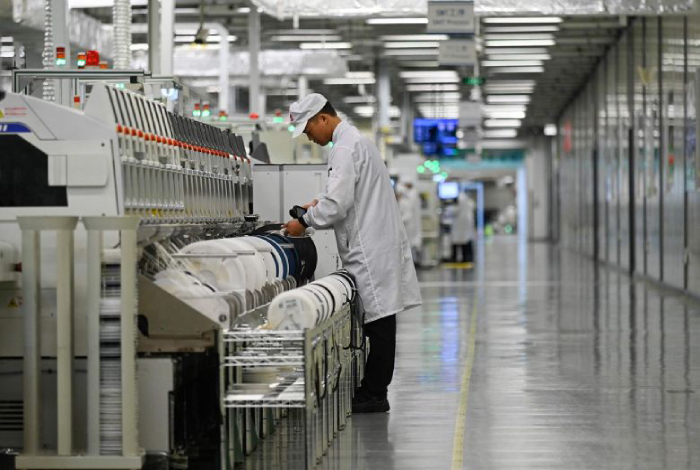Huawei, Chinese chip makers keep factories humming despite coronavirus outbreak


Some technology firms in China have maintained operations to manufacture parts and products despite government calls in various cities and provinces for companies to halt work to help stop the spread of a new coronavirus.
Chinese telecommunications giant Huawei Technologies said on Monday it had resumed production of goods, including consumer devices and carrier equipment, and operations were running normally.
The Shenzhen-based company restarted manufacturing after the Lunar New Year holiday in line with a special exemption that allows certain critical industries to remain in operation, despite Beijing's call to halt all work in some cities and provinces.
A spokesman for Huawei, the world's largest telecoms equipment supplier, said most of the production was in Dongguan, a city in the southern province of Guangdong.
[embed]https://www.youtube.com/watch?v=Zru5REL9ANg&feature=emb_title[/embed]
Other companies have also kept production running, in some cases even through the Lunar New Year, in a sign of the critical importance Beijing places on its domestic technology supply chain, a subject of friction with the United States
Yangtze Memory Technologies Co (YMTC), a state-backed maker of flash memory chips based in Wuhan - the city where the coronavirus outbreak began - confirmed that it had not ceased production.
"At present, production and operations at YMTC are proceeding normally and in an orderly manner," a company spokesman wrote in a statement.
The spokesman said no employees had been confirmed as infection cases, and the company had enacted certain isolation measures and partitions to ensure the safety of employees.

State media reported that the chip maker did not cease operations over the Lunar New Year holiday.
Meanwhile, Semiconductor Manufacturing International Corp (SMIC) also kept production running through the holiday break.
In a post on social media, the Hong Kong-listed contract chip maker said it organised a work group before the holiday to ensure plants could stay open, while protecting the safety of employees and adhering to government regulations.
"SMIC needs to ensure that factory production runs 365 days a year and 24 hours a day to meet customers' fabrication needs," the company said in the post.
The company, which rivals Taiwan Semiconductor Manufacturing Co, has facilities in Tianjin, Shenzhen, Beijing and Shanghai.
DRAMeXChange, a division of Taiwan-based research firm TrendForce, which tracks the global memory sector, reported that plants at Changxin Memory Technologies Co, based in a city close to Wuhan, and Xinxin Semiconductor Manufacturing, another memory company based in Wuhan, were continuing their operations.
The two companies did not immediately respond to emailed requests for comment.
Overseas parts makers with factories in China have also continued production. Samsung Electronics has not seen a production disruption at its chip factory in Xian, despite the coronavirus outbreak, two people familiar with the matter told Reuters. They did not give further details.

A Samsung representative confirmed that the plant had been running as usual, saying production had not stopped during the Lunar New Year holiday.
Representatives of Samsung Display, SK Hynix and LG Display also said they were running their Chinese factories as usual.
DRAMexChange wrote in a research note that it expected the virus to have no immediate impact on memory prices, though it could delay planned expansions for some companies.
One Samsung source, however, said the virus could still affect supply and demand if the health crisis continues.
For the latest updates on the Wuhan virus, visit here.